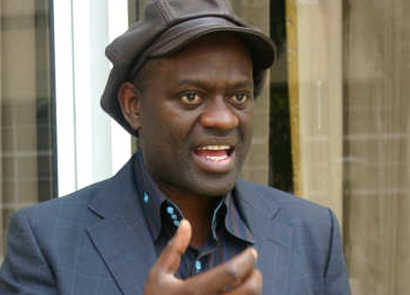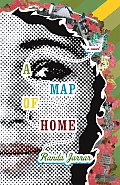Category: book reviews / recommendations

My review of Alain Mabanckou’s Broken Glass and African Psycho appears this weekend in The National. Here is the opening paragraph:
In Africa, when an old person dies, a library burns. When the Malian writer and ethnologist Amadou Hampâté Bâ uttered these words at a Unesco assembly in 1960, he was attempting to draw attention to Africa’s tradition of oral storytelling. Little did he know that his aphorism would turn into one of the most persistent clichés about the continent, one that unfortunately reinforced the erroneous idea that there was no tradition of written literature in Africa prior to European colonialism. Early on in Alain Mabanckou’s new novel Broken Glass (to be published this month in translation from French to English), the proprietor of a seedy bar in Brazzaville, who is referred to only as Stubborn Snail, hears the slogan and derisively responds that it “depends which old person, don’t talk crap, I only trust what’s written down.”
In fact, Stubborn Snail is so sure of the power of the written word that he gives a notebook to his most regular customer, an old schoolteacher nicknamed Broken Glass, and asks him to write his customers’ stories. Broken Glass takes up the challenge, though he quickly warns the reader that “I’m writing this for myself as well, that’s why I wouldn’t want to be in his shoes when he reads these pages, I don’t intend to spare him or anyone else.” One suspects that Mabanckou shares these feelings, that he has no time for pious and well-meaning clichés about Africa, and that he intends to write as irreverently and as freely as he pleases.
You can read the entire piece here.
 I was so overloaded with work last fall that I didn’t have time at all for any pleasure reading, which is why I came so late to my friend Randa Jarrar‘s debut novel, A Map of Home. This is a traditional bildungsroman, but one in which the hero is actually a Greek-Palestinian-Egyptian heroine named Nidali, who grows up in Kuwait and Texas, who puts in a strong argument for why the Egyptian crooner Abdel Halim must have been gay, and whose attempts at college entrance essays include one titled “I Come From Crazy Stubborn, Mad Lovin’ Hoes.” I read the book in one sitting. Jarrar writes with honesty and humor about what it’s like to be a Palestinian girl in Kuwait, or an Arab in Texas. Here’s a small excerpt from the middle of the book, when Nidali’s father decides he will write his memoir:
I was so overloaded with work last fall that I didn’t have time at all for any pleasure reading, which is why I came so late to my friend Randa Jarrar‘s debut novel, A Map of Home. This is a traditional bildungsroman, but one in which the hero is actually a Greek-Palestinian-Egyptian heroine named Nidali, who grows up in Kuwait and Texas, who puts in a strong argument for why the Egyptian crooner Abdel Halim must have been gay, and whose attempts at college entrance essays include one titled “I Come From Crazy Stubborn, Mad Lovin’ Hoes.” I read the book in one sitting. Jarrar writes with honesty and humor about what it’s like to be a Palestinian girl in Kuwait, or an Arab in Texas. Here’s a small excerpt from the middle of the book, when Nidali’s father decides he will write his memoir:
Your father was the #1 student in all of Jenin!” Baba said proudly one afternoon after supper. “I blew fear into the other boys’ hearts. No one surpassed me. I rode the donkey down to school every morning and sat in the classroom–which was freezing in wintertime since some of the windows were broken–and I always had my hand up: I could answer any question. Without fail, my name appeared first on that list every year.”
I wanted Baba to tell me more about this donkey, about growing up in Palestine on the small hill in the small house, spreading mats for beds on the floor of the one-room house. “I’d rather hear your stories than study any book,” I said, and, unfortunately for me, he took this announcement literally.
“Then bring me a piece of paper!” he commanded. “And bring me a pen!” he said, so I did, and then he said, “Sit! Now write: Ever…wait.” He stared off into the window, or at the branches in the fake forest we painted on the wall. “Evergreen,” he said, “write it,” so I did. Then he said, “Now write, A Memoir, Waheed Ammar,” so I wrote, A Memoir, Waheed Ammar. Then he stared off again and anxiously bit the inside of his cheeks, his mouth twisted to the side and his lips pouting.
“There…No! Don’t write that. Wait! The hills in 1901…No! Did you write that? Don’t write it. Wait till I say full stop. Wait! Fuck, you’re ruining my inspiration. Kids! You can’t be an artist and have kids! Now sit, don’t stand there leaning that paper against the couch, didn’t you hear? I said a memoir. So sit.”
You can find out more about the book here.
As I’m sure you’ve realized by now, I’m spending much of this week chatting up some of my friends’ books. Today, I was hoping you would take a look at Apologies Forthcoming, Xujun Eberlein‘s debut collection of short stories. Eberlein is an M.I.T-trained engineer who started writing in Chinese, but switched to English after moving to the United States in 1988. Her stories and personal essays have been published in Agni, StoryQuarterly, and Kwani, among other magazines. They often feature characters struggling with the effect of China’s cultural revolution. Her collection of stories, which won the Tartt Fiction Prize last year, is due out in May.
Yesterday, I mentioned Mark Sarvas‘s debut novel, so today I’d like to give a shout-out to my friend Mary Akers, a novelist and short story writer from New York. She just published her first book, Radical Gratitude, a memoir co-written with Andrew Bienkowski, about his experiences in Siberia, where he and his family were exiled during Stalin’s rule. The book has done very well in Australia (it’s already on a second printing there) and is due out in the UK, Germany, and elsewhere very soon. You can read some of Akers’s work in the Bellevue Literary Review, the Wisconsin Review, and Brevity.

